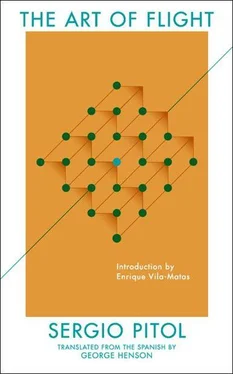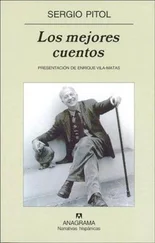As his adventures go by, the protagonist’s heavenly innocence begins to disappear; everything around him seems to grow tense. A foul stench of excrement permeates his surroundings with increasing intensity.
If in the first part of the novel an occasional scatological allusion helps to create one of those festive atmospheres derived from the old medieval and Renaissance tradition where feces, as Bakhtin shows, were always “a wellbeing of body and spirit,” what is certain is that as the protagonist approaches the front, this element of laughter wrinkles and blackens. The space of hardships that Švejk moves through is transformed into a spectral field whose elements are mud, feces, and blood. Švejk, a rough and incomplete being, an embryonic golem, moves with a somnambulistic step into a landscape populated by latrines. The bodies constantly return their constitutive matter to the ground. Critics attribute such importance to latrines as if the final victory depended on them. The front is transformed into an area of corporal expulsion, where one speaks only of urinals, enemas, diarrhea, suppositories, stained underwear, and fecal stench. More than the military element, Ripellino points out, war is to Hašek a continuous defecation, a bodily act and a diarrheal mud. “Immersed in the filth of the war, the Hapsburg Empire is revealed as an excremental entity, a foul-smelling region of dirty underwear, of enemas and suppositories.”
In short: an Empire drowning in its own excrement.
Švejk, the forced pilgrim, begins to shed his friendly bonhomie and resemble a tragic character. He is unable to do it completely because his memory serves as a counterweight that establishes the necessary stability. The world that Švejk recalls is capable of reducing the brutality of war to a mere escalation of the absurd. His voice, despite the incongruity of his speech, continues to be a human voice, and reminds us that until recently men were bound by bonds different to those that the army establishes, ties that were created by mutual sympathies; they were men in the middle of men, not anonymous sleepwalkers with military step.
The story of Švejk reveals and summarizes the anarchy and lyricism of Prague’s demimonde. Like the characters of Boccaccio, Rabelais, and Jarry, from whom he descends, the protagonist remains in perpetual motion. The novel gives off a certain stench of urine, of the den of miscreants, of poorly digested alcohol. Throughout his ordeal, Švejk keeps moving, not to mention talking. He has no regrets, he doesn’t swear, he simply tries to ignore what happens around him; he doesn’t read books, he barely manages to thumb through a newspaper. His wisdom comes from purely personal experiences, from recounting the actions of the many people upon whom he’s stumbled during his life. Through the river of anecdotes that slows the narrative action (but whose appearance in itself is already the novel), foolishness unpunished, the total absurdity upon which all human destinies depend, is manifested. Sometimes these small tales interpolated within the plot are very simple, which does not subtract from their efficacy: “But such is human existence,” says Švejk. “Man goes around making mistakes and only death stops him. That’s what happened one night to the man who found a rabid dog, frozen half to death; he took it to his room and put it in the bed where he slept with his wife. As soon as the dog came into heat, it began to bite the entire family, ripping the youngest child, who slept in the crib, to pieces and devouring him.” As in Kafka, life reveals itself as a mere transit through different proceedings of an endless trial. But what anguish and heaviness there is in the author of The Trial , in Hašek it is resolved in a cruelty that on the surface always seems to end in a joke. Other times, his digressions disguise an abstraction that intensifies the absurdity of the story, especially those related to the administration of justice: “‘Oh, don’t you worry,’ said Švejk. ‘You’ll be all right in the end, just like Janetchek at Pilsen. He was a gipsy, and in 1879 they were going to hang him for robbery and murder. But he didn’t worry and he kept saying that he’d be all right in the end. And so he was. Because at the last moment they couldn’t hang him, because it was the Emperor’s birthday. So they didn’t hang him till the next day, when the Emperor’s birthday was all over. But he was in luck’s way again, because on the day after he was reprieved and there was going to be another trial, on account of some new evidence that showed it was another fellow named Janetchek who’d done it. So they had to dig him up out of the prison cemetery and give him another, proper burial in the Catholic cemetery at Pilsen, and then it turned out that he wasn’t a Catholic at all, but an evangelical.”
Czech critics strenuously ignored Hašek’s work for several years. They found the popular vulgarity of the stories of Švejk repellent. But the success of the work abroad changed its destiny. Once again, the generous hand of Max Brod decided the fate of a creator. Just as he had done with Kafka, whose novels he published against the express instructions of the author, or with Leos Janacek, whose libretti he translated into German so that his operas could be sung outside of Czechoslovakia, when the moment was right, he also threw in with Hašek. He translated The Good Soldier Švejk into German, and published the first major critical text on the book. The novel was read voraciously in Austria and Germany. The memory of the recently lived war allowed very different audiences to crystallize in this book their rejection of a disastrous period. One did not have to wait long for its fame to begin to permeate the literary circles of the new Czechoslovakian Republic, reluctant to accept this novel of life in the barracks. Over the years, paradoxically, Hašek’s book became the first contemporary classic in the Czech language, and Švejk one of the country’s emblematic figures.
Mexico City, December 1991

19 The surname Švejk appears in various English translations and editions as Schweik, Schwejk, and Švejk. The quotes that appear here have been taken from Paul Selver’s 1930 translation for Doubleday & Co, which uses the Germanized spelling Schweik. Selver’s translation was later reissued by Penguin Classics using the Czech spelling Švejk, which I have chosen to replicate. All other aspects of the translation remain the same. —Trans.
20 Translated by Paul Selver
21 Translated by Katherine Parthé
I’m rereading materials for a book I’m endeavoring to write. It is meant to be a record of my journey — the history of a still-unfinished education. As I read, I find leftovers of snobbishness I thought I had rid myself of: among others, the tendency to quote visibly famous readings. It is not a question of invention or forgery, in no way am I interested in pretending to be a reader that I am not; it’s just that I have excluded other more “plebeian” books or, shall we say, more “ordinary” ones, which have been tremendously important in my life.
I have always resisted consuming books that are trendy or fashionable. My map of readings has been drawn more or less at random, by fate, temperament, and very much by hedonism. I am fascinated by the eccentrics. For over forty years I have been an avid reader of the novels of Ronald Firbank, when in England his audience was all but non-existent; also of the esoteric novels of H. Myers, which only a tiny handful of faithful have approached. I wrote about Flann O’Brien when the readers of At Swim-Two-Birds numbered scarcely a few dozen — all willing to die for that exceptional book.
Читать дальше













